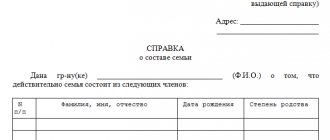Inheritance of something involves the transfer, after the death of a person, of his property and responsibilities to other people who are indicated in the will or are the legal heirs. According to existing laws, there are two options for inheritance - either a will or a law. There is no third.
Within 6 months, the heirs have the right to take advantage of the inheritance and either take actual possession of it, or come to the notary and write a statement expressing their desire to accept the property.
But situations in life are different. Sometimes it turns out that even the only and direct heir does not suspect for several years that one of his close people wished to leave him all their property after death. Having accidentally learned about this fact, the heir is confused about the fact that all the legal deadlines for taking possession of the bequeathed values have long passed, and does not understand how to enter into an inheritance after 6 months, which are clearly set aside for this by the laws of our country.
In fact, all is not lost. Such situations occur frequently, but there are many examples of successful resolution of such problems in favor of “lost” heirs. Of course, you will need to spend a lot more time, money and nerves than if you follow the usual procedure completed on time, but you don’t have to give up.
Is it possible to apply for an inheritance after six months?
It is possible to obtain a certificate of inheritance of property after the six-month period specially allocated for these purposes, but for this it will be necessary to go to court or obtain consent from other relatives to revise the share of the inherited property, taking into account one more heir.
Thus, there are two ways to resolve this situation: in court and without going to the justice authorities.
Restoration of rights to inherit property in court is possible if the heir was not aware of his status or had valid reasons that he can document. In this case, he must go to court no later than six months after the disappearance of the obstacles.
If other applicants for the inheritance indicate their consent in writing, recourse to the courts can be avoided.
Selling an inherited car
If you decide to sell a car that you inherited, things will be somewhat simpler. Currently, intermediate registration for an heir is not required , i.e. You can sell a car without contacting the traffic police.
To do this, you need to find a buyer (how to sell a used car) and conclude a vehicle purchase and sale agreement with him.
Contract of sale
Similarly, you can donate a car by concluding a car donation agreement.
Donation agreement
Are there any differences between receiving an inheritance under a will and without a will?
There are no differences in the mechanism for entering into the rights to inherit property by law and by will: in both cases it is necessary to contact a notary within a strictly established six-month period with a package of relevant documents. However, the grounds for the emergence of the right to inheritance of potential heirs differ significantly.
The inheritance passes by law if:
- the deceased did not draw up a will or, for objective reasons, it was declared invalid in court;
- the heir indicated in the testamentary document died before the deceased owner of the valuables;
- the heir refused the inheritance;
- Only part of the property was bequeathed to the deceased.
When inheriting by law, the principle of priority applies, in which the heirs of the 1st line are the first to assume rights - children (natural and officially adopted) and spouses (officially married) of the deceased, his parents, and also in the event of the death of children - grandchildren and their descendants by birth. right of representation. Subsequent lines from 2 to 8 unite all relatives according to the degree of kinship, and each group can inherit property strictly after the previous one.
When inheriting by will, such gradation does not exist. Heirs under a will are not only a representative of any line, but also strangers, the state or a legal organization. The testamentary document may indicate additional conditions for receiving an inheritance; Any property of the deceased is subject to will.
The next distinctive feature is that when submitting documents for inheritance, the law requires documentary evidence of relationship with the deceased, but if there is a will, this is not the case.
The general provision for both types of inheritance is the mandatory allocation of a share of the inheritance to minor children, disabled people, and incapacitated citizens who were dependent on the deceased.
If there are no legal successors?
When a citizen has not formed a testamentary act, the estate is transferred on the basis of current legislation. The first claimants to property include persons who are closely related to the deceased. In this situation we are talking about family members of the deceased. If there are no such persons, then the property goes to the brothers and sisters of the deceased.
The third order of heirs is represented by aunts and uncles, cousins. Next, other relatives are called to inherit. You need to understand how the situation is resolved when the deceased has no relatives. Two options apply.
These include:
- the mass becomes the property of the state;
- the right of provision is used.
In the latter case, the inheritance will go to the person assigned to any queue. To understand, you need to look at a specific example. Citizen R. has a son who died before him. However, he has children. In this case, the right of representation involves the transfer of property to grandchildren. It is necessary to collect evidence indicating the presence of family ties with the deceased. For this purpose, the notary is given a deed through which the person’s identity is verified and a document indicating the death of the testator.
It is always possible to find a solution to the situation under consideration. Therefore, there is no need to be upset when the deadline for becoming an heir is missed. In some situations, it is better to contact a lawyer.
Ways to receive an inheritance
Let's take a closer look at the options for receiving an inheritance after the deadline for submitting an application to a notary has expired:
- The best way to receive an inheritance is without court. This option is possible if there are several heirs. In this case, all other parties must provide written consent with the signatures of the notary and all participants in the procedure. On this basis, you can cancel the old one and issue a new certificate of inheritance.
- When restoring rights through the court, evidence must be submitted that the reason why the heir could not accept the inheritance within the prescribed period is truly valid. This option is quite labor-intensive and takes a lot of time, so you should be patient and enlist the support of professionals.
In this case, the statement of claim should be filed after the reasons for the untimely application to the court have been eliminated.
- As a workaround, some citizens may use another method: actually taking possession of the property of the deceased. Receipts for payment of tax and utility bills may be considered supporting documents; real estate renovation agreement; receipts for the purchase of building materials.
The following table will help you understand some of the typical issues that arise when going to court:
| Situation | Action |
| Obtaining a share in the inheritance in court after 6 months | |
| The deadline for submitting an application to a notary to enter into inheritance rights has expired, but in fact the relative accepted the inheritance, being responsible for its safety and paying the costs associated with its maintenance. | It is necessary to file a claim with the court for recognition of ownership rights. As an argument, indicate the actual acceptance of the inheritance, providing documents that confirm this (Article 1153 of the Civil Code of the Russian Federation). |
| The heir did not enter into inheritance rights for a good reason: he was on a long business trip or expedition; stayed in places of deprivation of liberty and had no connection with the outside world, etc. | In this case, a claim is filed to restore the period for accepting the inheritance, indicating a valid reason (Article 1155 of the Civil Code of the Russian Federation). |
| The determination of the spouses' shares in the property mass is incorrect. | A revaluation of jointly acquired material and intangible assets is carried out and a claim is filed for the allocation of the marital share. |
| A person who has been dependent on the deceased for more than 1 year claims a share of the property. | A distant relative or an outsider may be included in the group of 1st line heirs upon confirmation of the fact of dependence, which has legal significance, in court (Article 264 of the Code of Civil Procedure of the Russian Federation). |
| The will contains gross errors, it was drawn up under pressure, or there is reason to believe that the person did not understand what was happening. | It is necessary to go to court to invalidate the will, which will serve as the basis for division of property according to law. |
| Receiving a share in an inheritance without going to court | |
| The heir missed the deadline for accepting the inheritance, but turned to the other heirs in writing with a request for the redistribution of shares or, in the case of the sale of property, for the allocation of monetary compensation to him. | 2 options for the development of events: 1. The heirs will give their consent, and their shares will be redistributed. 2. Relatives do not agree to include the latecomer in the share. Then the issue is resolved in court. |
Litigation can drag on for years, so the best option is to find a compromise solution.
Rules for opening an inheritance and entering into rights
The starting point for entering into inheritance is the moment of death of a citizen. From this date the inheritance is considered open.
The grounds for opening an inheritance are:
- death of a citizen;
- declaring a citizen dead.
Art. 1154 of the Civil Code of the Russian Federation provides for a 6-month period for heirs to apply to the notary office at the place of residence of the deceased in order to enter into an inheritance.
Take the survey and a lawyer will share an inheritance action plan in your case for free
You might find it useful:
State duty calculator for inheritance
Samples of inheritance documents
Consultation with a lawyer on inheritance
How to enter into an inheritance through the court after 6 months
If the heir did not manage to meet the six-month deadline established by law, there is no need to worry. It is possible to register an inheritance after this time, but you will have to make some efforts to defend your right.
If at least some part of the inheritance is accepted during the six-month period, the entire property is considered to have been inherited.
Procedure for asserting rights in court
- Contacting a notary office to obtain a written refusal to issue a certificate.
- Drawing up a statement of claim indicating the reason for missing the six-month deadline.
It must be accompanied by documents that are factual confirmation of the reason for the violation. The law does not establish a clear list of compelling reasons why a citizen could not contact a notary. The most common reason for violation of the deadlines for accepting inherited property is the heir’s ignorance of the death of the testator. However, simply informing the court about this will not be enough; you need to provide significant evidence confirming this fact. Appropriate letters, telegrams or witness statements are suitable for this purpose. Any factors that led to the missed application period being missed will be taken into account. For example, if a person was abroad all this time, it is assumed that he may not have known about the death of the testator. In such cases, the judge renews the period for accepting the inheritance from the day the heir is notified of the death of the testator.
Such a reason for delay in processing documents as “lack of time” is not significant for representatives of the law, therefore, in this case, they have the right to refuse to provide additional time to resolve the issue.
Situations are possible when the cause of the violation was the negligent attitude towards their duties by the persons who were entrusted with the responsibility for accepting the inheritance.
- A trial during which the reasons for the violation of deadlines are analyzed and the degree of their importance is determined. During the proceedings, each of the interested parties is heard.
- Waiting for a court decision indicating the share of each heir in case of a positive decision.
- Applying to a notary with a court decision to restore the deadline for filing an application, providing him with the documents necessary to obtain a certificate of inheritance of property.
An application to receive the property of a deceased relative is submitted immediately after a positive court decision has been received. A professional notary will help you prepare the document correctly the first time. Documents regarding the property of the deceased are also provided.
- Obtaining a certificate of acceptance of inheritance (6 months after opening the inheritance case or later).
- If in the statement of claim the plaintiff asked to secure ownership of property, the court decision replaces the certificate of inheritance of property and there is no need to contact a notary. The right to property will be transferred by a court decision on the assignment of a share of the inheritance.
You can file a claim yourself or with the help of a lawyer. The obligatory points in it will be:
- full name of the court;
- a formulated request for renewal of the deadline;
- personal data about the plaintiff and other heirs (if any);
- information about family ties with the deceased;
- justified reasons for absence.
The following documents are attached to the claim:
- Power of attorney, if his representative acts for the heir.
- Copies of statements of claim: 1 - for the plaintiff, the remaining copies for each of the interested parties.
- Confirmation of payment of state duty.
- Documents confirming the reasons for absence, for example, a certificate from the hospital, a travel document, a document indicating the term of imprisonment.
To file a claim, the heir or his legal representative applies to the court of the district where the defendant or one of the defendants lives, but if their location is unknown, the application takes place at the location of the property. The deadline for filing a claim should not be more than 6 months after the moment when the causes of the violation have been eliminated.
If the heir dies, it is no longer possible to restore the period. In this case, the property can be received by his heirs, since the right of hereditary transmission will come into force.
During the trial, it is prohibited to make any legal transactions with the object of the dispute, and the issuance of certificates, if they have not yet been issued, is suspended.
A positive court decision is the basis for invalidating previously issued certificates of ownership.
If any of the parties is not satisfied with the outcome of events, an appeal can be filed. The court decision becomes valid 30 days after its delivery.
The property that is to be returned to the plaintiff may have been sold or damaged at the time the claim is filed. In this case, it matters when the damage or sale of valuables occurred. If before the appearance of a new heir, then there was negligence or intent, and if after, the damage is subject to compensation. An amount of funds equal to the cost of the sold property must be returned to the new owner in accordance with his share.
If a bank deposit is divided, the new heir has the right to the income received from it. The moment when the amount of such income begins to count is the receipt of information about the existing heir.
When property requires maintenance costs, the person responsible for its preservation may require compensation from the new owner.
Example. Citizen L. was undergoing treatment for drug addiction in a closed institution in Germany. At this time, his father died, leaving an apartment as an inheritance. The son did not know about the death of a relative and missed the deadline for entering into inheritance rights. L. returned 11 months after his father’s death, and a month after his arrival he filed a lawsuit to restore the inheritance period. The court made a positive decision, after which L. turned to a notary to obtain a certificate of inheritance of property.
If no one inherits, to whom does the property go?
Let's consider what to do if the heir has not entered into the inheritance within 6 months. It should be noted that the notary does not have information about the deceased and their property. Such information is not distributed among offices. That is why the recipient of the property should contact a specialist with a request to open an inheritance case.
If the heirs do not enter into inheritance within 6 months, then the property is divided in equal shares between relatives according to the order of priority established by family law. A different period of time has been allocated for the procedure, which is 3 months. During this period, family members must declare their intentions by contacting a notary.
A similar process occurs in the case when the heirs of the first priority renounce their ownership rights. For example, if they do not want to enter into an inheritance. Then applicants for property become applicants of the second priority, etc., in accordance with the list of kinships. The three-month period of time does not occur for each new stage. Therefore, it is logical to declare your intention to exercise your rights to property immediately after six months after the death of the testator.
If the heir of the first priority has not entered into the inheritance, and after 9 months no one else wants to become the new owner, the property receives the status of escheat and becomes the property of the state. There are features of the procedure:
- the state is obliged to accept the property without refusal;
- the personal property of the deceased from the category of housing and land is transferred to the balance of the municipality, other property belongs to federal ownership;
- the period for entering into inheritance begins to flow again, i.e. it is also six months as initially.
After accepting the property of the testator, the tax authority registers it, then it is assessed and sold. The funds go to the budget of the level to which the state body that owns the property belongs. The state can begin the registration procedure after six months. However, the actions of authorized persons become meaningless if one of the relatives applies within the established three-month period. Therefore, the authorities prefer to wait a full 9 months so that the heir under the will does not enter into the inheritance.
The legislation establishes that a citizen is obliged to take ownership of property in full. That is, you cannot select some property from the list and take possession exclusively, for example, of an apartment. Not only the rights of the deceased are transferred, but also his obligations. In this case, inheritance occurs in equal shares (if carried out according to the legal rule of priority).
In this regard, there are often cases when the heir does not want to enter into an inheritance. To avoid delaying time, he can refuse what he has bequeathed or inherited. In this case, further claims to the property are excluded for him. Let’s also assume the “silent mode”. That is, a relative has the right not to notify of his intention to receive property for use. After the specified time, the property is automatically recognized as unclaimed.
How to accept an inheritance after 6 months without trial
If the heir who did not accept the inheritance is not the only one, and other heirs accepted the inheritance without violating the deadline and agree to include the late relative among the heirs, registration is possible through conciliation.
The algorithm of actions is as follows:
- Contact the heirs with a request to formalize in writing their consent to the redistribution of the inheritance or payment of the amount of material compensation if the bequeathed values were sold. There can be 1 sheet of agreement for all heirs. It is possible to transfer the document by mail or through an official representative. The agreement is certified by a notary in the presence of all those involved in the inheritance.
- The notary notifies about the nature of the redistribution of shares or disinheritance during a new division. The heirs are not required to explain the reasons for their consent or disagreement to the inclusion of a late relative in the group of inheritors.
- Issuance by a notary of a certificate of acceptance of inheritance by law or will.
- If an agreement is reached between relatives and certificates have already been issued, they are canceled by the notary and new ones are issued instead. Appropriate adjustments are made to the state registration records of real estate.
- If certificates have not been issued, they are issued taking into account the reduction of the share due to each of the relatives in favor of the late heir.
In practice, it is difficult to reach an agreement if the latecomer claims a significant share of the inheritance, is the sole owner of valuables, or belongs to the category of people who are entitled to a mandatory share in the inheritance. In case of refusal, you must go to court.
Example. Citizen S. died suddenly. Her direct heir, daughter A., was in another country, working under a contract, and was not notified of her mother’s death. The son of citizen S. and her granddaughter, who belongs to the heirs of the 1st stage by right of representation, entered into inheritance rights. After 8 months, the daughter returned and turned to her brother and niece, who each received ½ of their mother’s inheritance, to sign an agreement stating that they were not against restoring the term through conciliation. Having issued their consent, the relatives certified the document by a notary, and everyone was issued certificates of inheritance for 1/3 of the inheritance of citizen S.
Partial entry
Current legislation does not allow partial inheritance. Therefore, receiving a certain part of the property is regarded as accepting the full amount, including all debt obligations of the testator. If there are several heirs, the debt is distributed among them according to the share received.
The period for registering inherited property is unlimited. Some unscrupulous heirs hide behind this fact to avoid paying debts and utility bills. However, you still have to pay the bills, so when entering into an inheritance, you should carefully familiarize yourself with the property of the deceased.
The procedure for accepting an inheritance after the statutory period is quite complex and confusing. Some situations are difficult to understand even for a professional, not to mention ordinary citizens. Therefore, to competently solve the problem, it is better to use the help of an experienced lawyer.
To find out all the details and ask questions about how to enter into an inheritance after a six-month period, you can use the services of the specialists of the ros-nasledstvo.ru portal. They will help you correctly draw up an application and prepare the necessary documents confirming your legal rights to inherited property. You can also take advantage of them, which will save you from the need to complete documentation, visit courts and other unpleasant procedures.
FREE CONSULTATIONS are available for you! If you want to solve exactly your problem, then
:
- describe your situation to a lawyer in an online chat;
- write a question in the form below;
- call Moscow and Moscow region
- call St. Petersburg and region
Save or share the link on social networks
- FREE for a lawyer!
Write your question, our lawyer will prepare an answer for FREE and call you back in 5 minutes.
By submitting data you agree to the Consent to PD processing, PD Processing Policy and User Agreement
Useful information on the topic
46
Entry into inheritance after death under a will
The procedure and rules for entering into inheritance under a will are established by the chapter...
23
Lawsuit to restore the deadline for accepting an inheritance in 2021
The judicial hearing of the case on restoration of the period for accepting an inheritance begins with...
28
How to draw up a will for an apartment
The legislation of the Russian Federation establishes the right of every capable citizen to perform posthumous...
10
How to find out if there is an inheritance
The sudden death of the testator or lack of contact with other applicants may...
17
Mandatory share in the inheritance by will and by law (without a will)
The legislative act regulating civil law in the field of inheritance (section V...
15
Are loan debts inherited?
The short answer is YES, debts are inherited if the heir accepts the inheritance...
Procedure
How to enter into an inheritance if more than 6 months have passed (here the rule is the same for all participants, including those who were mentioned as a successor to the deceased in the will):
- Call the notary and arrange a date for the visit. This is a slow process, so it is better to notify about your visit in advance.
- Find out how much you need to pay and prepare this amount.
- Come at the appointed time with your passport, find out the due share, pay, sign copies of the certificate of ownership. Plain paper copies remain in the folder that contains the case. The originals on a special form go to the owners.
There is no need to re-submit the originals of all mentioned documents that have already been submitted. But practice shows that the presence of such makes the entry procedure easier for the heir himself.







